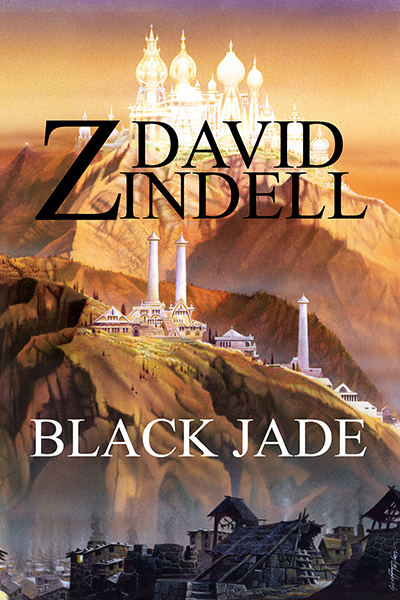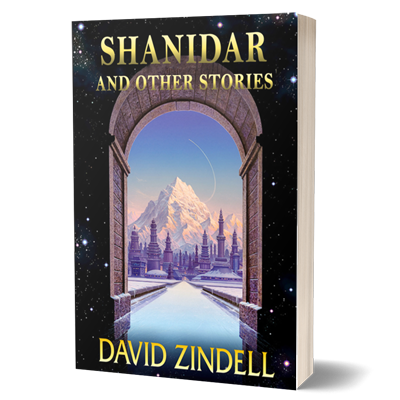 In this big novel, the second longest I have ever written, I became a torturer. I needed to test my characters to their limits. I needed to find out the truth about them. And so I put to their flesh fire, ice and steel, even as I subjected their souls to a thirst so awful that most people would want to die rather than endure it.
In this big novel, the second longest I have ever written, I became a torturer. I needed to test my characters to their limits. I needed to find out the truth about them. And so I put to their flesh fire, ice and steel, even as I subjected their souls to a thirst so awful that most people would want to die rather than endure it.
Kane comes as close to death as he ever has. Master Juwain and Liljana tear open the wounds between their ancient orders – and nearly rip each other apart. Val wants to slay Maram as his best friend drinks himself straight toward doom. Maram, seeking the pleasures of life as no man ever has, finds instead an endlessness of pain. Burning sands and sun blacken his skin. Despair breaks his will. He feels driven to abandon his quest, his friends and perhaps most of all, himself.
Even before my heroes reach the Red Desert’s terrible Tar-Harath, they must face the more terrible Skadarak. There, at the center of a blighted wood, the cursed crystal called the Black Jade lies buried in the earth. Morjin attacks them through this ancient black gelstei. The dark heart of the earth calls to the dark part of each of them – and to Val it calls the most loudly of all.
I had questions I wanted answered: What is the nature of good and evil? Can faith in the former, like the wearing of a magical talisman, keep us from the latter? Or is avoiding evil deeds more a matter of the will? What is the will, really? From where does it come? Are our souls really free?
In trying to answer these perhaps unanswerable questions, I borrowed an image from science and from science fiction: the black hole. Physicists’ equations describe a concentration of matter, like a frozen star, so dense that it begins to collapse inward upon itself. The black hole generates such a powerful gravitational field that it captures anything approaching too close – anything that crosses a boundary known as the event horizon. Beyond this point of no return, things are crushed into a sort of infinite blackness. Not even light can escape its terrible pull.
In Black Jade, I wanted to write about a black hole of the soul. The Skadarak, whatever it is actually and physically, goes to work on the deep structures of the human psyche. It captures people. I wanted to know the answer to another question, as well: once people are lost in a metaphoric dark wood, can they ever find their way back to the light?
Kane believes that people can. He has to believe this. At the end of Lord Of Lies, he has told this to Val: “There are no evil men. Only evil deeds.”
That sentiment I found in an old Sufi song encouraging people to overcome the difficulties of the spiritual path:
Come, come, whoever you are,
This caravan knows no despair,
Even though you’ve broken your vows
Perhaps ten thousand times,
Come, come again.
I, even more than Kane, having disappointed myself at least ten thousand times since my childhood, always wanted to believe that I could make my life better. I always wanted to counter every evil deed I committed with ten good ones. I wanted to think that every time I fell into the darkest of holes inside myself, I could find a way to climb back out again.
Val, blessed with empathy for other beings – or perhaps cursed – feels exactly the same way. His company winds up capturing a deadly droghul: a human being bred and born to take the shape of Morjin. The droghul is like a puppet made out of flesh. The Lord of Lies, from afar, pulls the droghul’s strings. He controls everything that the droghul thinks, feels and does. Almost everything. For somewhere inside the droghul burns the flame of selfness and free will. The droghul, like Pinocchio, wants to be a real human being. And the droghul, like all of us, secretly feels the pull to leave evil behind and turn toward the good.
In the Bible, Abraham negotiates with God to spare wicked Sodom from destruction for the sake of the few righteous men who might live there. InBlack Jade, Val argues with Kane over slaying the droghul. Val wants to spare the droghul’s life for the sake of the good in him. He is really arguing for God to spare himself. Val knows too well all the murderous deeds that he has committed in the pursuit of “good” ends. The souls of all those he has slain with his silver sword haunt him. He needs to believe that he could never fall as far as has Morjin or his terrible droghul – and that if he did, he could somehow find his way back to his true humanity.
Against all the darkness and seriousness of this novel, I wanted to lighten things a little. To break up long passages of action, description and dialogue, I wrote a good deal of verse. I did this for a couple of reasons. First, in the kind of Medieval and barely literate cultures that much fantasy recreates, verse held an importance that we of a more bookish society find hard to appreciate. Poetry served not only the function of expressing epics poetically, but of preserving in an oral tradition a great deal of wisdom and lore. Interweaving verse with story hints at a whole other world. Second, I like writing in meter and rhyme. It is simply a lot of fun.
And the most fun I had was in Maram’s playful versifying. This big buffoon of a man likes to mock sacred songs with doggerel that he composes to justify his foibles.
Respected tradition in Ea exalts eros. The fires of sex, the ancient Brotherhood teaches, blaze within the body-soul’s second chakra, just below the navel. A spiritual man walking on the path toward the stars should activate the seven chakras through the meditative disciplines. He should try to free these sacred flames so that they burn straight up the spine through the heart chakra and all the higher ones, and so unite man with the heavens in a flash of lightning.
Maram, who can’t stand sanctimony or the tiresome burden of “higher purpose,” tells it like it really is:
In woman’s cry of ecstasy
I find my immortality:
With every kiss, caress and thrust
I sing eternal praise to lust.
I am a second chakra man;
I take my pleasure while I can
From maiden, matron, harridan,
I am a second chakra man.
So rebellious and vociferous is he that he belts out these verses in places that he should remain silent. And so without knowing it, he awakens the interest of an immortal woman known as Jezi Yaga. This monster waylays travelers and either eats them or turns them to stone – after she is done with them. For she seeks the one man who can father in her a godlike child called the Marudin. No man, however, has ever proved potent enough to do that.
The hairy, hideously ugly Jezi Yaga thinks that Maram is singing just for her. She construes his braggadocio as a promise of great sexual power. And so she sings back to him:
Alone I’ve dwelled nine hundred years
In mountains, deserts, stinking meres,
Regaling travelers where I can
While waiting for my dragon man.
No scholar, magus, king on high
If they be cool or soft or dry;
My man is molten earth’s desire,
Whose loins are full, whose blood is fire.
He comes for me, most mighty snake,
A mighty raging thirst to slake,
Make live inside my honeyed womb
The Marudin’s immortal bloom.
I am a maid of angel’s seed,
An unfilled well of burning need;
My time has come to mate and breed –
I am a maid of angel’s seed.
Jezi, with the highest of hopes alongside a volcanic lust, captures Maram and drags him inside her hut of bones. He has always prayed to find the most passionate woman in the world. And now he will get more – much, much more! – than he has wished for.
Toward the end of the novel, things turn serious again. Val and his companions have sought across forests, deserts and mountains for the Maitreya, the Lord of Light who can wield the golden Cup Of Heaven to defeat Morjin. They, too, in a way, get more than they wish for. For even in achieving a great good, they will paradoxically set up their world to suffer the greatest possible evil.
Purchasing Links
Black Jade can be purchased at the following online stores.
Print version: Amazon
Ebook: Amazon • Barnes and Noble • Kobo • Apple Store • Smashwords

